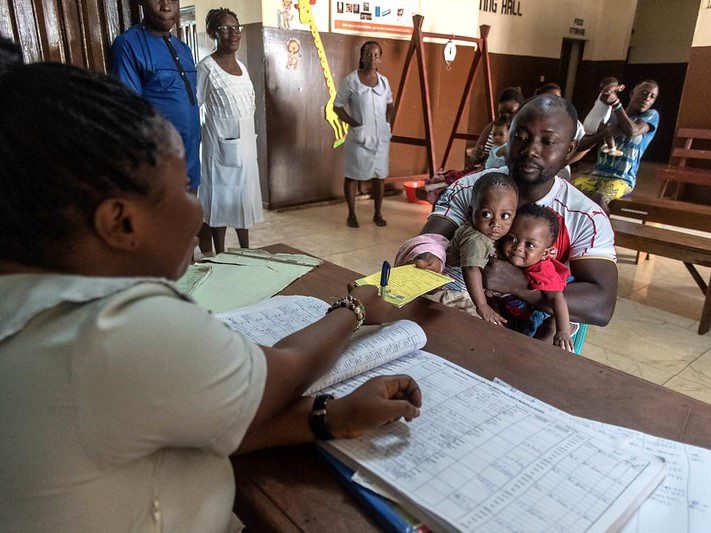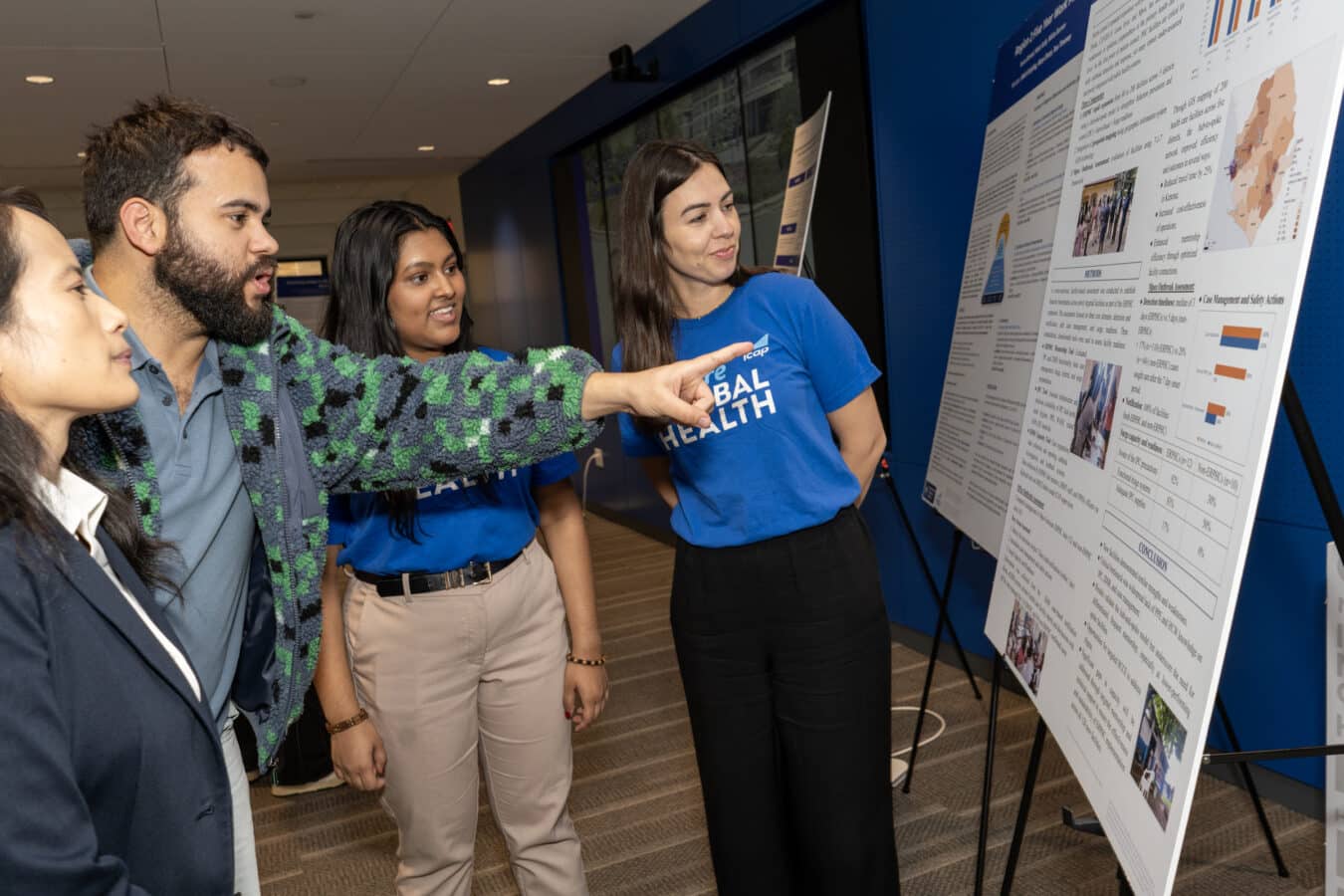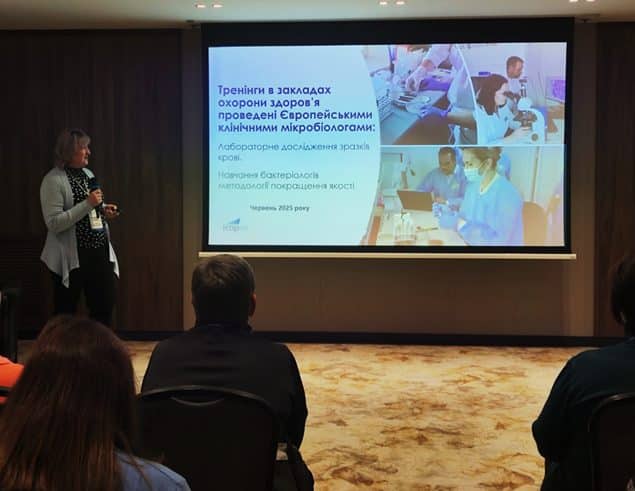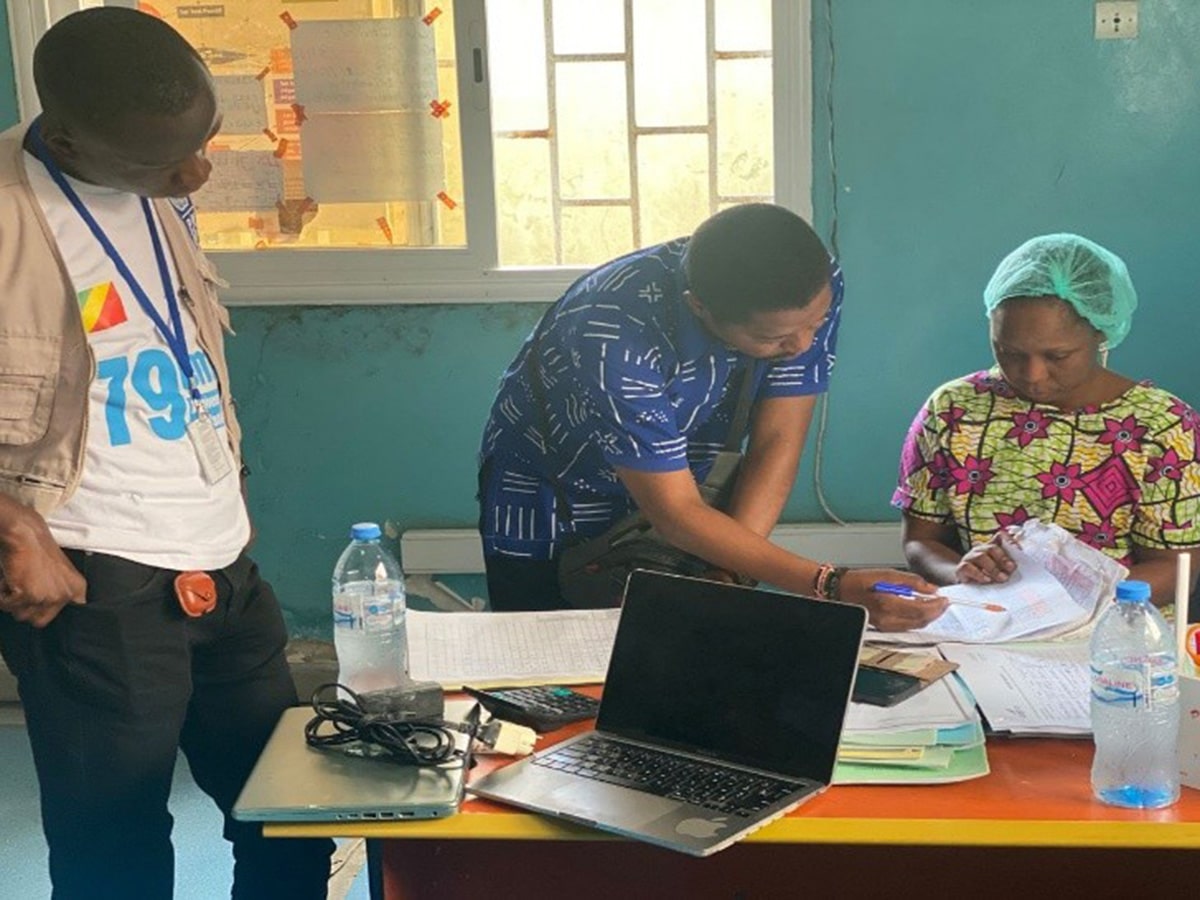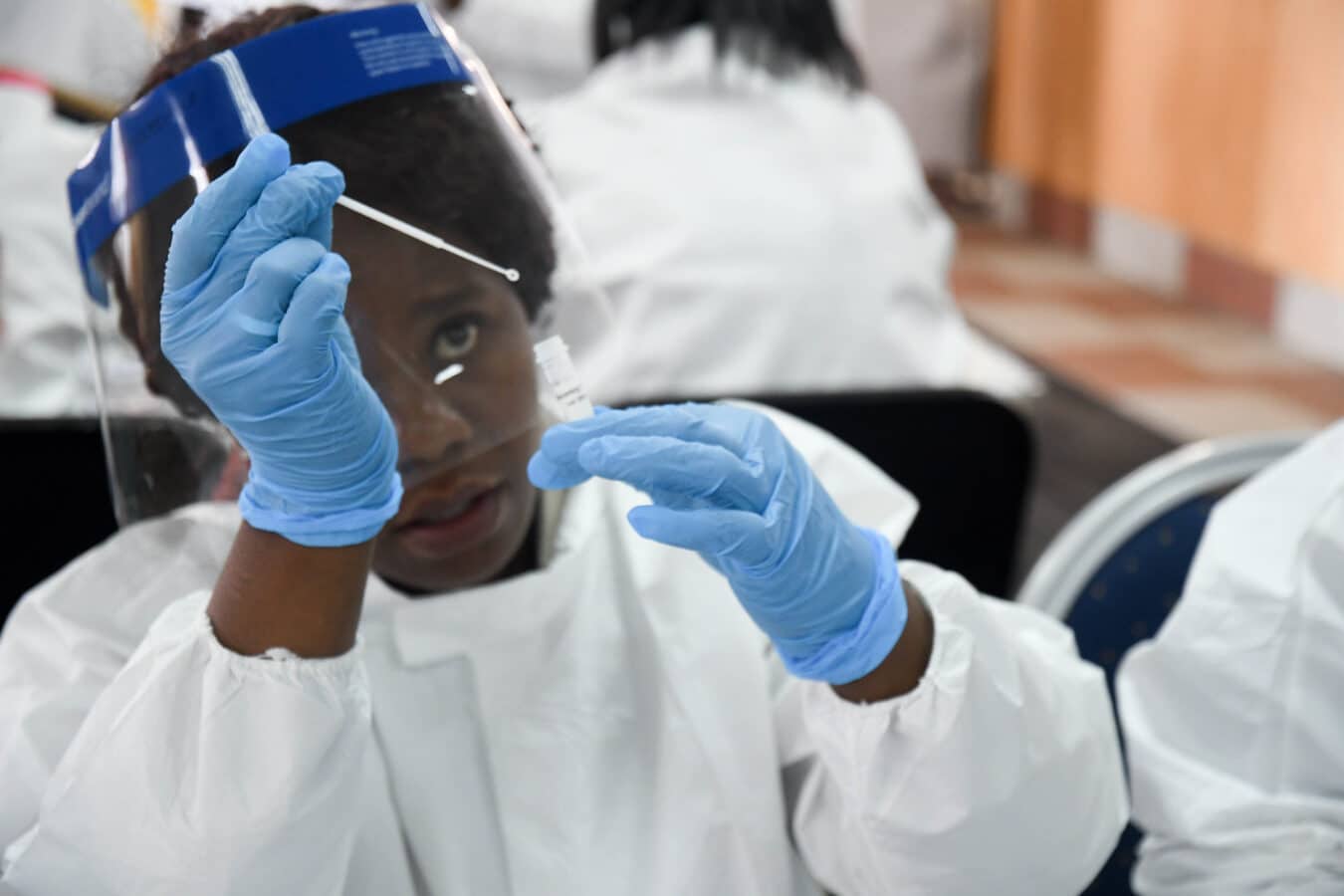Before ICAP began supporting the Sierra Leone Ministry of Health ‘s Child Health/Expanded Program on Immunization (CH/EPI), vaccination performance in the country had taken a nose-dive. A WHO and UNICEF estimate showed that within one year, the number of unvaccinated children in Sierra Leone increased from 15,020 in 2021 to 25,000 in 2022 – leaving large numbers of children vulnerable to such disease as measles, polio, diphtheria, tuberculosis, and hepatitis, among others.
To improve and strengthen Sierra Leone’s vaccination statistics, ICAP provided technical, strategic management, and operational support to CH/EPI.
“Even though the Sierra Leone Ministry of Health works with Health Development Partners (HDPs) and other child health and immunization stakeholders to implement the country’s vaccination plan, an ICAP assessment of the barriers to vaccination in Sierra Leone showed several gaps,” said Mame Awa Toure, MD, MSc, ICAP’s country director in Sierra Leone. “We found that the lack of coordination between HDPs, inadequate microplanning at district and health facility levels, and knowledge gap on integrated immunization among health care workers were some of the reasons for low vaccination uptake in communities.”
ICAP supported Sierra Leone’s Ministry of Health to develop a national strategic vaccination plan that would highlight the gaps and areas of interventions for all HDPs to implement. ICAP and the HDPs developed micro-plans to address immunization barriers, conducted nationwide training of supervisors and vaccination teams, and mobilized local government agencies – including the National Council of Paramount Chiefs – to increase vaccination demand in communities. ICAP also supported the HDPs to conduct two routine immunization exercises to reach unvaccinated children and missed communities and reviewed, updated, and finalized the CH/EPI national immunization policy.
Through these concerted efforts, Sierra Leone reduced the number of zero-dose unvaccinated children by 35 percent within a month. Between February and March 2023, the Sierra Leone Ministry of Health vaccinated 8,750 out of 25,000 children.
“ICAP’s interventions have strengthened the collaboration between EPI, the National Council of Paramount Chiefs, and other health development partners,” said Chief Fayia Sovula, chairman of the Sierra Leone National Council of Paramount Chiefs, one of the partners who played a pivotal role in creating awareness and vaccination demand for hard-to-reach communities. “We are determined to support the CH/EPI to generate demand for vaccines and to communicate vaccination interventions so we can improve the health of our communities.”
The initiative is funded by the U.S. Centers for Disease Control and Prevention’s (CDC’s) coronavirus disease 2019 (COVID-19) International Vaccine Implementation and Evaluation (CIVIE) program. The CIVIE program was established by the CDC to work with countries’ ministries of health to support the planning, execution, and evaluation of COVID-19 vaccination programs.
About ICAP
A major global health organization that has been improving public health in countries around the world for two decades, ICAP works to transform the health of populations through innovation, science, and global collaboration. Based at Columbia Mailman School of Public Health, ICAP has projects in more than 40 countries, working side-by-side with ministries of health and local governmental, non-governmental, academic, and community partners to confront some of the world’s greatest health challenges. Through evidence-informed programs, meaningful research, tailored technical assistance, effective training and education programs, and rigorous surveillance to measure and evaluate the impact of public health interventions, ICAP aims to realize a global vision of healthy people, empowered communities, and thriving societies. Online at icap.columbia.edu


